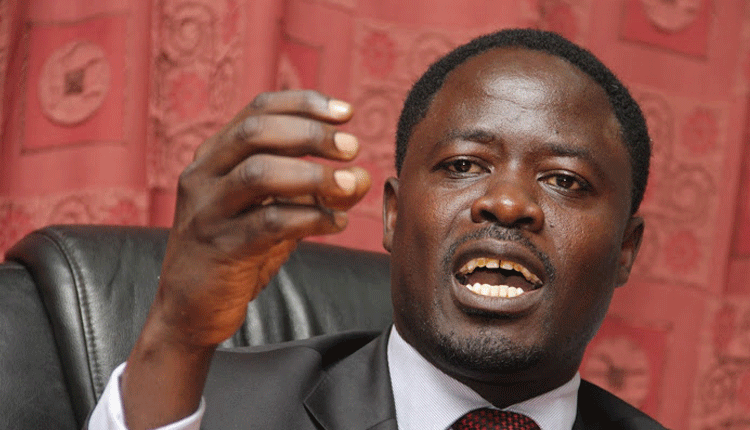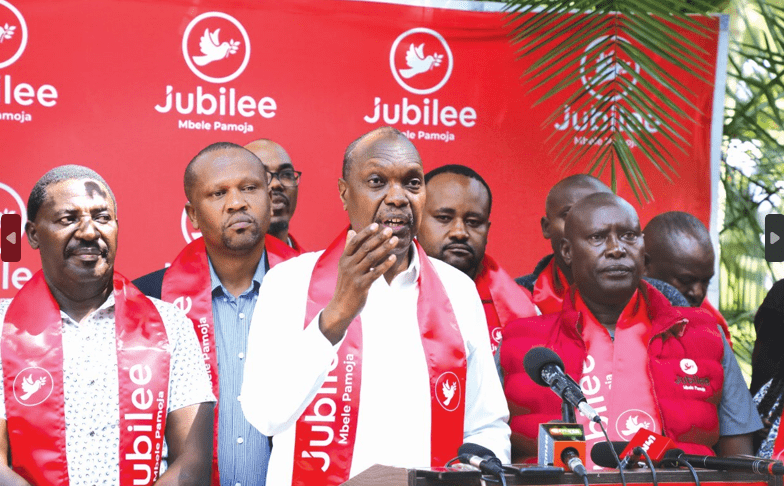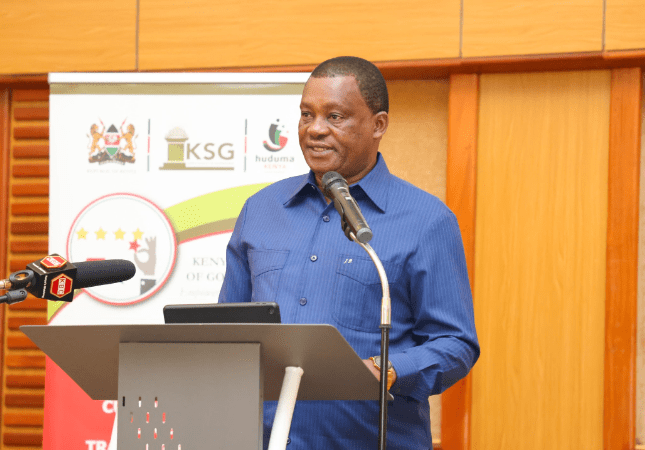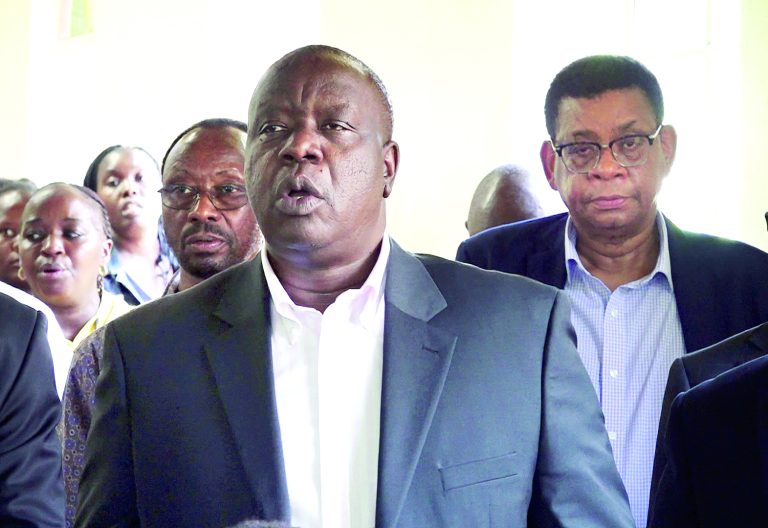State mulls new taxes, to review others next year
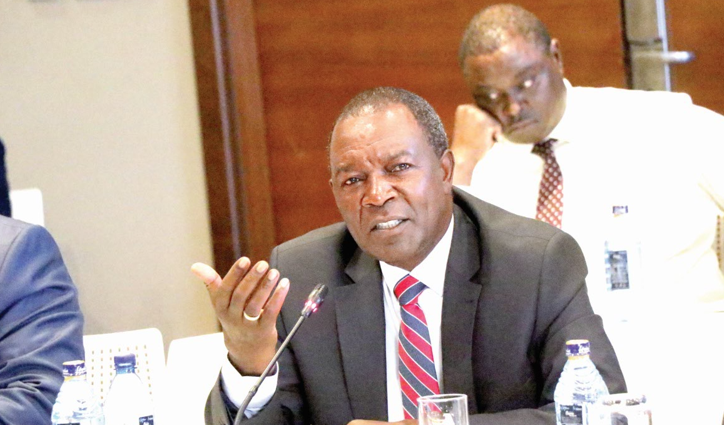
Kenyans should brace for more pain ahead as President William Ruto’s second year in office is set to come with fresh taxes that were proposed in the latest medium-term revenue strategy.
Coming soon after the High Court threw out litigation against the contentious Finance Act 2023, the National Treasury Cabinet Secretary Njuguna Ndung’u has proposed introducing six new taxes, while realigning some to match the neighbouring countries from July 2024.
Some of the existing tax rates are also likely to be reviewed upwards as part of efforts to generate more revenue for funding key government programmes, spur enterprise and create jobs for youths.
As outlined in the government’s Draft Medium-term Debt Strategy for the period between 2024 and 2027, the move puts Ruto’s ambition of tripling the current tax revenues in his first term right on track.
Valued-Added-Tax (VAT) on education and insurance services, excise duty on coal and motor vehicle circulation tax are some of the new taxes households and businesses will contend with from next year if the proposals are ratified.
To adapt to the evolving landscape of transportation and taxation, Treasury proposed a significant policy shift by suggesting the implementation of an annual Motor Vehicle Circulation tax – also known as road tax – to be paid by all motor vehicle owners at the point of acquiring insurance cover.
“Government will assess the viability of introducing motor vehicle tax in the medium term as a form of wealth tax. The tax will be paid annually by motor vehicle owners at the point of acquiring insurance,” Treasury said in the draft medium-term revenue strategy.
“There will be a minimum tax amount payable by all car motor vehicles owners in addition to a graduated amount based on the engine capacity of the vehicle,” the strategy paper reads in part.
This is in response to the ongoing electrification of transport and the need to explore alternative revenue sources, as highlighted in a report from the International Monetary Fund (IMF).
The proposal, which was initially put forth by Kenya and subsequently included in the IMF’s report following the 5th review concluded in July, is seen as a potential substitute for the traditional fuel levy.
The tax base expansion will further include the re-introduction of minimum tax, the introduction of a carbon tax to fight climate change, and surcharge taxes, which the exchequer will levy to seal revenue collection shortfalls realised by the Kenya Revenue Authority (KRA).
Missing the target
By the end of June 2023, KRA collected Sh2.17 trillion, missing the target by about Sh107 billion owing to tough economic conditions that came on the back of tax reliefs and evasion. In the month of July, the month-on-month collection also dipped compared to July, a common trend when the authority is kicking off a financial cycle.
“This strategy targets to raise the ratio of ordinary revenue to GDP (Gross Domestic Product) collection by an additional five percent gradually through the strategy period,” said Ndung’u.
“This will be achieved through putting in place tax policies and administrative measures that support economic growth; improving efficiency in tax administration; expanding the tax base; and promoting equity and fairness in the tax regime,” added Ndung’u.
The current Finance Act 2023, which was challenged in court over constitutionality and economic risks, also introduced a couple of new taxes. The Court of Appeal has since ended the battle, giving a green light for the Act’s implementation.
A significant proposal in this new strategy is the harmonisation of Kenya’s VAT with that of the East African Community (EAC) member states. Harmonisation of VAT implies aligning the rates and regulations in Kenya with those of other EAC countries to create a more consistent tax framework across the region.
This can facilitate trade and economic integration within the EAC. Apart from income corporate tax, at 30 per cent, the rest of the taxes, including VAT, vary in their application, a factor that impacts cross-border business.
While Ruto has previously indicated there is need to increase the VAT above the current 16 percent rate, the Treasury has indicated the draft strategy will review upwards the VAT rate and its threshold to spur efficiency. VAT threshold now stands at Sh5 million.
As Treasury considers these reviews, it is likely to seek a similar 18 per cent VAT rate that Tanzania and Uganda have. Domestic VAT, excise duty, and Pay-As-You-Earn (PAYE) were among the tax heads that increased by meager margins, making them prime targets to shore up revenue.
“Currently, VAT rate in Kenya is among the lowest within the EAC States. The EAC Common Market Protocol foresees harmonisation of taxes before EAC Monterey Union. The government will review the VAT rates as well as VAT exemptions and zero rating,” reads the draft strategy.
The exchequer is targeting revenue equivalent to 15.8 percent of the GDP this 2023/24 fiscal year ending in June next year, equivalent to Sh2.6 trillion in ordinary revenues. The current collection is about 14 percent of the GDP, which the government believes is quite low given the country’s economic ability.
Yet, in what seems to be an attempt to outdo the EAC States in attracting investments, Ruto’s administration wants to lower the Corporate Income Tax (CIC) rate by five percent to 25 percent from the current 30 per cent.
This will see Kenya having one of the lowest CIC rates in East Africa and second only to Egypt in Africa, which boasts a 22 per cent rate, making it significantly more competitive than South Africa’s 27 percent.
The move is part of a broader effort to boost compliance and attract foreign investors in a fiercely competitive global landscape.
Difficult country
Kenya was ranked this week as the second most difficult country for businesses after South Sudan by the East African Business Council (EABC) in its Ease of Doing Business in the East Africa Community (EAC) report.
Among the challenges the surveyed firms highlighted were foreign currency inadequacies, tax-related issues and trade restrictions. This ranking points to challenges and obstacles that businesses face in Kenya, potentially deterring investment opportunities and impacting the country’s economic growth.
“Another significant challenge is government operations, particularly related to receiving payments from the government for supplied goods and services, securing government tenders and obtaining tax refunds, tax appeals, rulings and customs valuation,” reads the report by EABC.


